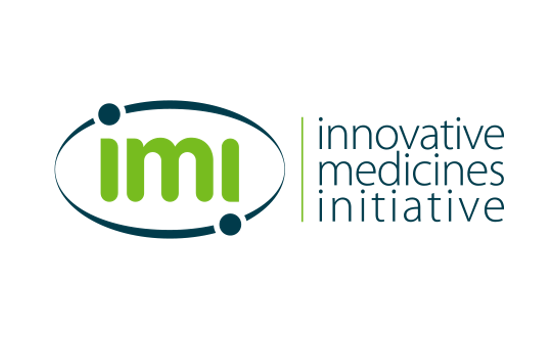 The Innovative Medicines Initiative (IMI) and the Bill and Melinda Gates Foundation are to collaborate on a project to improve vaccines against whooping cough. Whooping cough, also known as pertussis, is an infectious disease caused by the Bordetella pertussis bacterium and characterised by severe coughing fits. Worldwide, there are around 16 million cases and 195 000 deaths from pertussis in children every year. Vaccines against pertussis do exist, but a resurgence in the number of cases in certain countries is cause for concern. This new project will make it possible to refine current vaccination schedules to make them more effective, and facilitate the development of new and improved vaccine formulations.
The Innovative Medicines Initiative (IMI) and the Bill and Melinda Gates Foundation are to collaborate on a project to improve vaccines against whooping cough. Whooping cough, also known as pertussis, is an infectious disease caused by the Bordetella pertussis bacterium and characterised by severe coughing fits. Worldwide, there are around 16 million cases and 195 000 deaths from pertussis in children every year. Vaccines against pertussis do exist, but a resurgence in the number of cases in certain countries is cause for concern. This new project will make it possible to refine current vaccination schedules to make them more effective, and facilitate the development of new and improved vaccine formulations.
"It is unacceptable that a vaccine-preventable disease like whooping cough remains a leading cause of death for young people around the world," said Trevor Mundel, president of Global Health at the Bill & Melinda Gates Foundation. "We are excited to partner with the Innovative Medicines Initiative in such a critical area of global health research to identify and develop more effective vaccines because when kids are healthier, communities and economies thrive."
The project is part of IMI's 3rd and 4th Calls for proposals, which are launched simultaneously today and give researchers across Europe and beyond the opportunity to apply to take part in ambitious projects that will pave the way for the medicines and vaccines of the future. Other topics launched today are:
Remote assessment of disease and relapse: Many diseases feature periods of relapse or sudden progression that require urgent treatment and have a serious impact on patients' quality of life. This topic will investigate how smart technologies (e.g. sensors, smartphones) could be applied to predict relapses and so prevent them. The programme will focus initially on depression, multiple sclerosis and epilepsy.
Type 2 diabetes: The project will investigate ways of identifying both patients with prediabetes who are most likely to develop full-blown diabetes, and patients with diabetes whose condition is likely to deteriorate most rapidly.
Neuropsychiatry: This programme will add to our understanding of the underlying biological causes of neuropsychiatric diseases with the goal of advancing drug discovery and development in this important area.
Vaccine manufacture: This topic aims to develop and refine a new approach to testing the quality of vaccines during the production process that will significantly reduce the need for animal testing.
Patient involvement in research: It is widely recognised that patients can and should be more involved in all aspects of medicines development. This project will create a hub where stakeholders can share and discuss best practices for patient engagement.
Speeding up patient access to new medicines: New medicines must be assessed by a number of groups, including regulators, and the organisations responsible for paying for healthcare. ‘Medicines adaptive pathways to patients’ (MAPPs) refers to efforts to make medicines development and decision-making pathways more flexible and so to grant access to medicines to ensure new medicines reach patients rapidly while facilitating the collection of further data on benefits and risks of new medicines. This topic will see the creation of a platform to coordinate activities in this area.
Irene Norstedt, IMI's Acting Executive Director commented: "The Innovative Medicines Initiative is committed to speeding up both medicines development and patient access to new medicines, especially in areas where treatments are lacking. These new Calls for proposals are fully in line with those goals, and I am confident that the resulting projects will contribute to making a real difference to patients' lives."
The total budget for the Calls launched today is €115 million. Half of this will come from the European Commission through the Horizon 2020 programme for research and innovation. The other half will be contributed by EFPIA companies involved in the project as well as other Associated Partners, including the Bill & Melinda Gates Foundation.
About IMI
The Innovative Medicines Initiative (IMI) is working to improve health by speeding up the development of, and patient access to, innovative medicines, particularly in areas where there is an unmet medical or social need. It does this by facilitating collaboration between the key players involved in healthcare research, including universities, the pharmaceutical and other industries, small and medium-sized enterprises (SMEs), patient organisations, and medicines regulators.
IMI is a partnership between the European Union and the European pharmaceutical industry, represented by the European Federation of Pharmaceutical Industries and Associations (EFPIA). IMI has a budget of €3.3 billion for the period 2014-2024. Half of this comes from the EU's research and innovation programme, Horizon 2020. The other half comes from large companies, mostly from the pharmaceutical sector; these do not receive any EU funding, but contribute to the projects 'in kind', for example by donating their researchers' time or providing access to research facilities or resources.
More info on IMI: www.imi.europa.eu